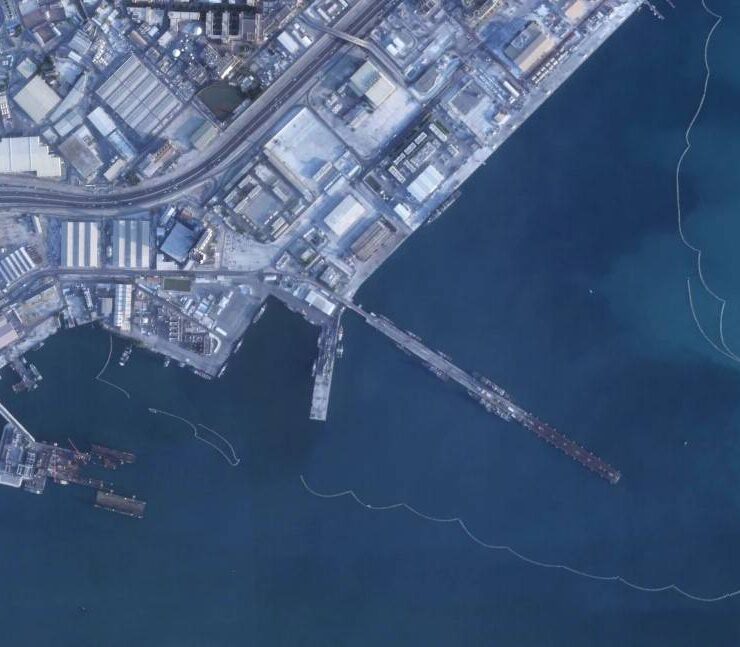Crimes beyond comprehension

Four recent stories deserve not only our attention but an effort to understand how they might tie together. The first is a Washington Post story by Rebecca Tan and Pei-Lin Wu published on June 24: “Chinese association accused of mixing crime and patriotism as it serves Beijing,” which argues, “Chinese leader Xi Jinping’s bid to expand China’s influence has made increasing use of Chinese people living and working abroad … includes selectively exploiting ties to criminals that proclaim loyalty to the CCP … letting them thrive as long as their illicit activities remain offshore and do not threaten domestic stability.”
The article zeroes in on Wan Kuok Koi (considered to be among Asia’s most powerful crime bosses), chair of the World Hongmen History and Culture Association, “which describes itself as an ethnic Chinese fraternal organization devoted to promoting Chinese culture abroad” but which US officials claim is a front for the 14K triad, which “routinely supported Beijing’s political objectives in Southeast Asia, the Pacific, and Africa.” The article briefly mentions allegations of espionage on behalf of China in the Philippines.
The second appeared in the Asia Sentinel, “US Busts Philippine ‘Pig-Butchering’ Op,” with about 430 suspected victims in Texas, Arizona, Virginia, Iowa, and California. “Pig-butchering” is “translated from Chinese shāzhūpán, which refers to a scam in which the victim is “fattened up prior to slaughter,” and encouraged to make increasing financial contributions over a long period in fake investment schemes, usually in cryptocurrencies.” This was an update to an April story detailing how “transnational organized crime in Southeast Asia, driven by artificial intelligence, stablecoins, and blockchain networks, is evolving faster than at any previous point in history and expanding across the globe. Cambodia, Laos, Myanmar, and the Philippines were particular target sites picked by scammers to base their operations.”
The third was by Bernadette Soriano in ExplainedPH, “Dead Water: The hidden graveyard beneath Taal,” which has the most recent update on the seemingly slow-burning but never-ending story of e-sabong and the trail of human misery and death surrounding that pandemic-era scheme.
A related story in Politiko.com, “From cockpits to courtrooms: DOJ probes extent of e-sabong’s reach,” eerily reads like similar moments when the government, left no choice but to recognize how things have gotten out of hand, has to race to try to contain a situation seemingly on the verge of getting totally out of control (this happened after the Ampatuan massacre; and, more recently, when the present administration had to purge the top brass of the Philippine National Police in the wake of their possible complicity in or potentially unprofessional loyalty to the previous administration and its so-called “war on drugs”).
What US officials accuse the 14K triad of engaging in—drug trafficking, illegal gambling, racketeering, human trafficking, and a range of other criminal activities—happens to be the catalog of crimes that Philippine offshore gaming operators (Pogos) have been suspected of or proven to engage in; though what remains is confusion over whether the Chinese government has a hand in it or not.
The pressure applied on our government in the past by the Chinese government (which the Duterte administration resisted, and which the Marcos administration has proven to be more cooperative), I’ve repeatedly argued, tells us the Pogos didn’t enjoy Beijing’s blessings; but it makes sense if particular gangsters or groups made themselves useful to the authorities in exchange for leniency. But to blur the distinctions between overseas crime and the Chinese government’s pursuit of its aims is, frankly, lazy, and usually, racist. It also reduces the potential for mutually advantageous cooperation between Chinese and Filipino authorities.
What these articles tell us, however, is something racketeers of all kinds have known for a generation or so now: we have the secret sauce for gangsterism: a national government whose writ is feeble on the local level; national bureaucracies with far too many staff susceptible to bribery and collusion where it counts: our borders, in our police, in the administration of justice, and where rich and poor alike are agnostic when it comes to the sources of their income.
The Achilles’ heel of our institutions is in terms of transnational crime. Racketeers are using 21st-century technologies in a country where our institutions are stuck somewhere between the late 19th and mid-20th centuries in their technological know-how and management of data (not much better for the private sector, arguably, as the infamous “Lazarus heist” engineered by a North Korean hacker demonstrated).
Consider this: only Sen. Ronald dela Rosa consistently campaigned on a law-and-order platform. Yet, you have to ask how he’d handle an investigation to tie all these threads together, and you have to wonder if the secretary of Justice can do any better.





















Economic gains, uneven lives